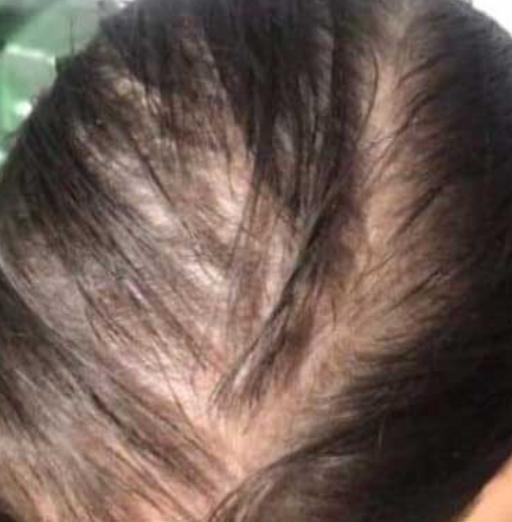Your Cart is Empty
Thicker, Fuller Hair Without the Side Effects.
Thicker, Fuller Hair Without the Side Effects.
Thicker, Fuller Hair Without the Side Effects.
March 20, 2025 3 min read
Hair loss is a common symptom that can deeply affect a woman's self-esteem and overall emotional wellbeing. Often, identifying the underlying cause is crucial in effectively managing and treating hair loss. One frequently overlooked cause in women is thyroid dysfunction. Your thyroid gland, located at the base of your neck, plays an instrumental role in regulating your metabolism and numerous bodily functions. When thyroid issues arise, one notable consequence can be hair thinning and loss.
Your thyroid gland produces two primary hormones—triiodothyronine (T3) and thyroxine (T4). These hormones are essential to the proper functioning of your heart rate, weight control, energy, skin health, and hair growth cycles. A well-balanced thyroid hormone level ensures healthy cell regeneration and follicular activity. Conversely, when thyroid hormone production slows down or spikes due to common conditions such as hypothyroidism (low thyroid hormone production) or hyperthyroidism (excessive thyroid hormone production), disruptions occur in the delicate hair growth cycle.
Hair goes through a well-defined growth cycle consisting of periods of active growth (anagen), transition (catagen), and shedding (telogen). Thyroid dysfunction often pushes hair follicles prematurely into the shedding, or telogen, phase. As a result, affected women typically experience noticeable hair loss, thinning hair texture, and sometimes patchy hair fall.
Not all hair loss is thyroid-related, but there are certain indicators unique to thyroid-induced thinning hair. Common signs may include diffuse hair thinning across the scalp rather than patchiness exclusively along the hairline, noticing increased shedding in your brushes, combs, or pillowcases, as well as experiencing hair dryness and brittleness. Often, thyroid dysfunction in women comes alongside additional symptoms, such as unexplained weight fluctuations, constant tiredness, cold sensitivity, irregular menstrual cycles, and skin dryness. If you notice one or more of these symptoms paired with your hair loss, it's essential to discuss potential thyroid issues with your healthcare professional.
When thyroid dysfunction is suspected, your doctor will typically suggest blood tests designed to measure TSH (thyroid-stimulating hormone), T3, and T4 levels in your bloodstream. This helps to accurately diagnose conditions like hypothyroidism or hyperthyroidism. Depending upon the results, your healthcare provider may recommend medication to balance your thyroid hormones and stabilise your body's metabolism. For many women, successful thyroid treatment can significantly improve hair regrowth and restore hair thickness over time.
It's worth noting that hair recovery following thyroid treatment often takes patience. Hair follicles need time to transition from a resting phase back into active growth. You may not see noticeable improvements immediately—typically, visible hair regrowth could take several months after hormone balance is restored.
In addition to medical intervention, making certain lifestyle and dietary tweaks can help support thyroid function and subsequently improve hair growth. Increasing your intake of nutrient-rich foods—particularly essential vitamins and minerals such as iodine, selenium, zinc, and vitamins E and D—can benefit both your thyroid health and hair growth cycle. Reducing stress through regular exercise, yoga, meditation, or other forms of relaxation can further assist in balancing thyroid function and promoting improved hair health.
Besides professional medical advice and lifestyle enhancements, choosing targeted haircare products can significantly boost hair recovery efforts while addressing thyroid-related hair loss. One such premium solution is Folliboost, a scientifically designed hair growth serum enriched with essential nutrients and natural components. With regular use, Folliboost strengthens hair follicles, rejuvenates hair growth, and complements thyroid recovery effectively, offering an empowering solution for women dealing with thyroid and hair loss concerns.
Experiencing hair loss connected to thyroid health can indeed feel discouraging, but it doesn't have to hold you back. Understanding the link between your thyroid gland and your hair helps you better identify symptoms early, leading to faster diagnosis and targeted treatments. With professional medical intervention, lifestyle alterations, and appropriate topical hair care, women dealing with thyroid-related hair loss will be well-equipped to regain confidence in their appearance and daily lives.
